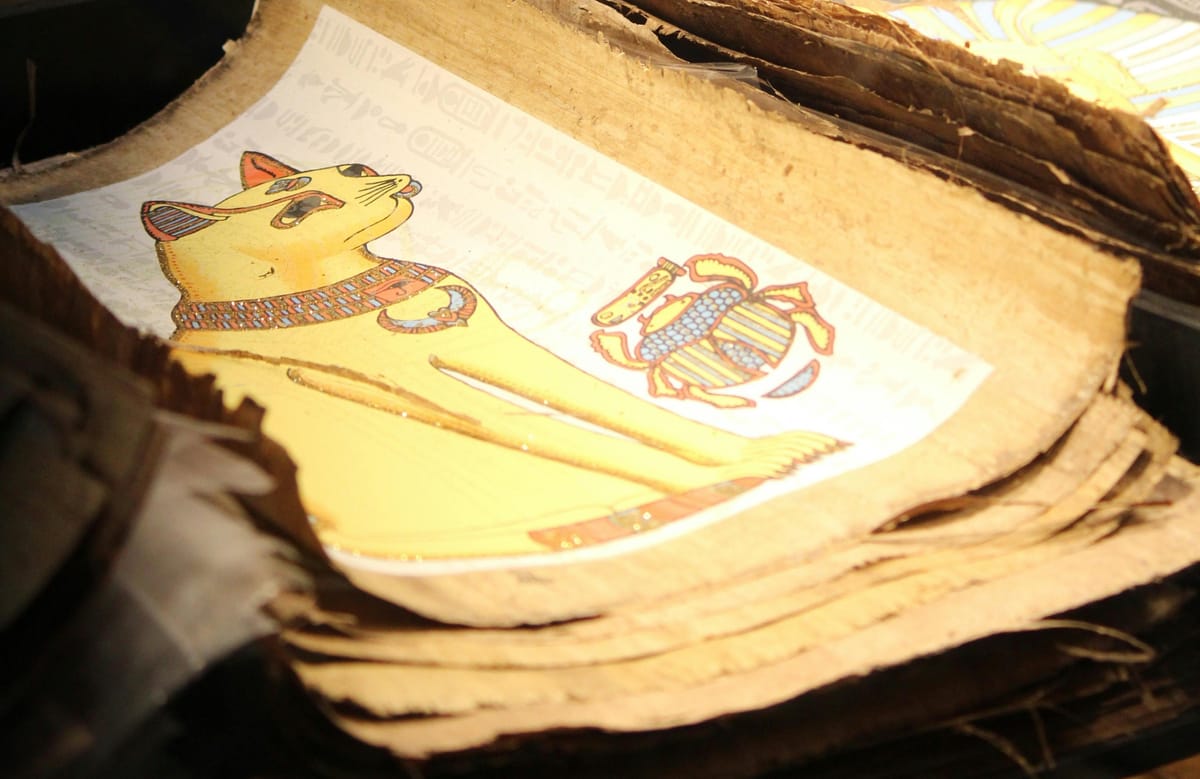Cats Through History: What Antient Cultures Thought of Cats
Did you know cats once ruled palaces and temples? Some were seen as gods, others as protectors, and a few even brought fear. Today, we cuddle them, but ancient civilizations had much wilder beliefs. Keep on reading to discover what your ancient ancestors would have thought of your cat.

Cats rule the internet today, but in ancient times, they ruled palaces, temples, and entire villages. While we see them as pets and companions, past civilizations had very different views. Some worshipped them as sacred beings, while others valued them for hunting pests. Keep reading to discover how ancient cultures saw and treated cats.
Cats in Ancient Cultures
Across cultures, cats held different meanings. Some saw them as sacred, linked to gods and goddesses. Others valued them mainly for hunting pests. Their role depended on the beliefs and needs of each culture.
Ancient Egypt
Cats weren’t just pets, they were protectors. At first, they kept homes safe by hunting snakes and rats.
Over time, they became symbols of divine protection, linked to Bastet, the goddess of home and family.
Egyptians loved them so much that harming a cat, even by accident, was punishable by death. Many were even mummified and honored in temples.
Ancient Mesopotamia
In Mesopotamia, cats were seen as both protectors and mystical beings. They kept grain stores safe from rodents and were connected to the goddess Ishtar, representing love and power.
Wealthy families dressed their cats in jewelry, and some were even buried with their owners. People believed cats could link the human world to the divine.
Ancient Greece and Rome
The Greeks saw cats mainly as useful hunters but didn’t worship them like the Egyptians did. Some linked them to Hecate, the goddess of magic.
The Romans loved cats for their independence and saw them as symbols of freedom. They kept them as pets, but cats never reached the same divine status as in Egypt.
Ancient Persia
Persians admired cats for their hunting skills and agility. In Zoroastrian traditions, they were seen as household protectors.
Some warriors even believed eating cat meat could make them fearless, but this was rare.
In folklore, cats symbolized both cleverness and courage.
Norse Cultures
In Norse mythology, cats were sacred to Freyja, the goddess of love and war. Her chariot was said to be pulled by two large cats.
Because of this, cats became symbols of protection and prosperity. They were often kept by farmers to guard their homes and grain.
This brought about the cutest wedding tradition. Norse men were supposed to give kittens to their wives on their wedding day.
Asian Cultures
In China, cats were valued for keeping food safe and were thought to bring good fortune.
In Japan, they became symbols of luck, with the famous maneki-neko (beckoning cat) still seen in shops today.
Indian mythology also honored cats. They were linked to fertility and motherhood through the goddess Shashthi.
Medieval Europe
During the Middle Ages, cats' reputation took a dark turn.
They were often seen as symbols of witchcraft and the devil, leading to many being killed. Still, some people kept them around to control pests.
Africa (beyond Egypt)
Across Africa, cats were mostly seen as protectors, keeping food supplies safe. Some tribes believed they had spiritual powers, guarding homes from evil spirits.
Ancient Americas
Before European contact, domestic cats didn’t exist in the Americas, but wild cats like jaguars were deeply respected.
The Maya and Aztecs saw them as powerful protectors, often linked to gods and warriors.
Celtic Cultures
The Celts had mixed feelings about cats. Some myths saw them as magical guardians, while others viewed them as mysterious and unpredictable creatures.
Final Thoughts
No matter the time or place, cats have never been just animals. They’ve been protectors, symbols of power, and even sacred beings.
Feared, loved, or worshipped, they’ve always had a special place in human history and in our hearts.